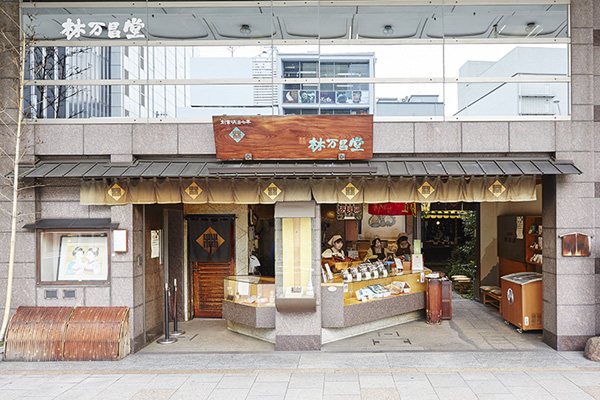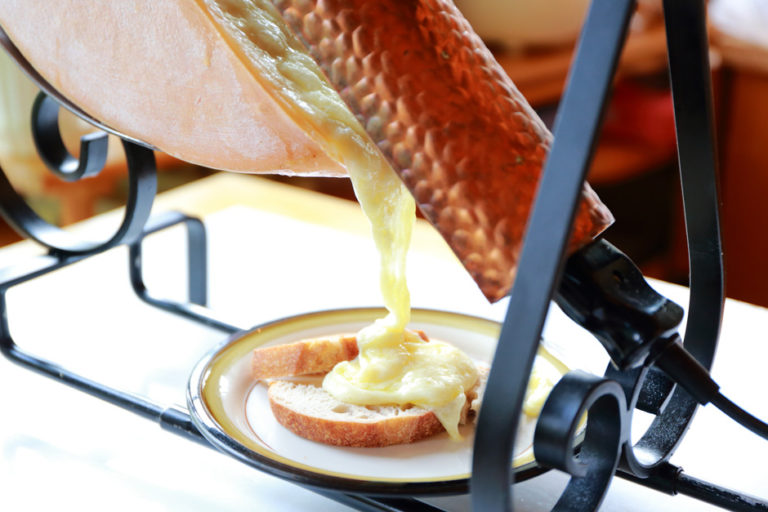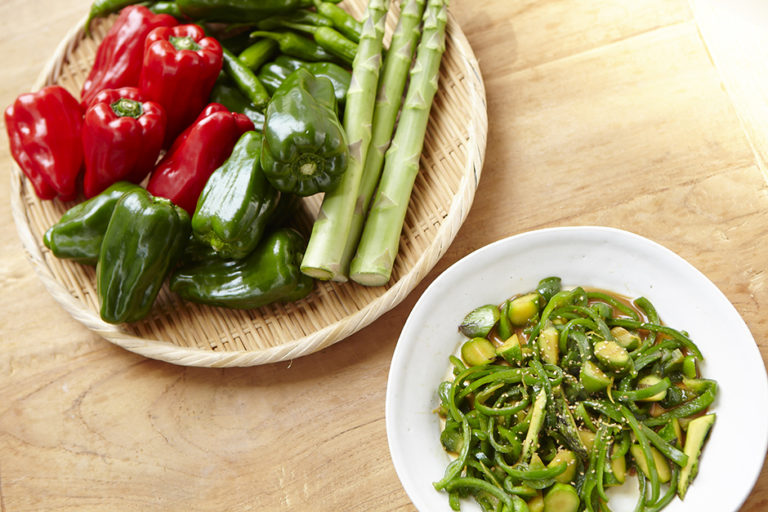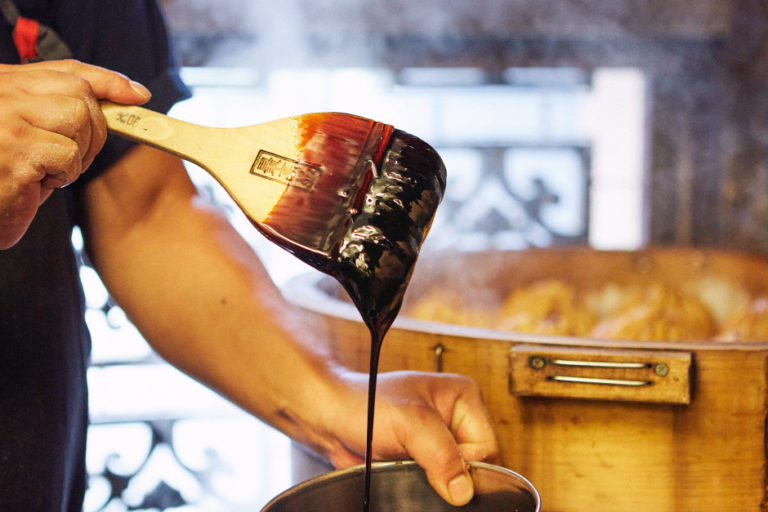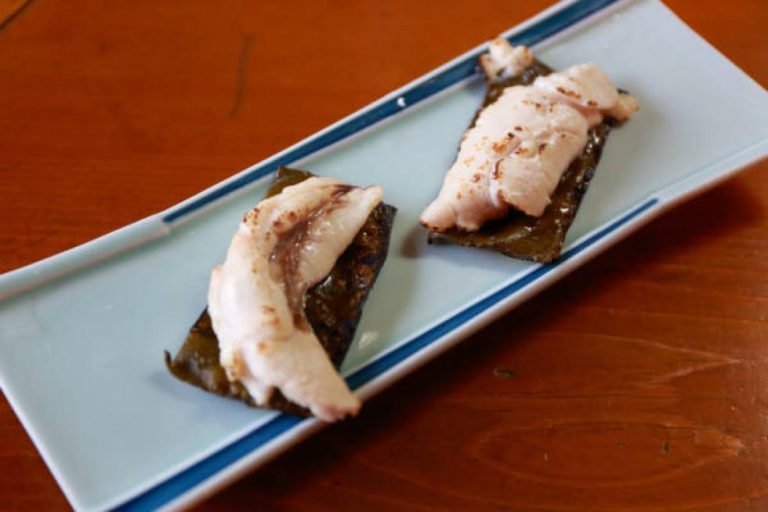Elegant, Sweet Roasted Chestnuts from a Specialty Store
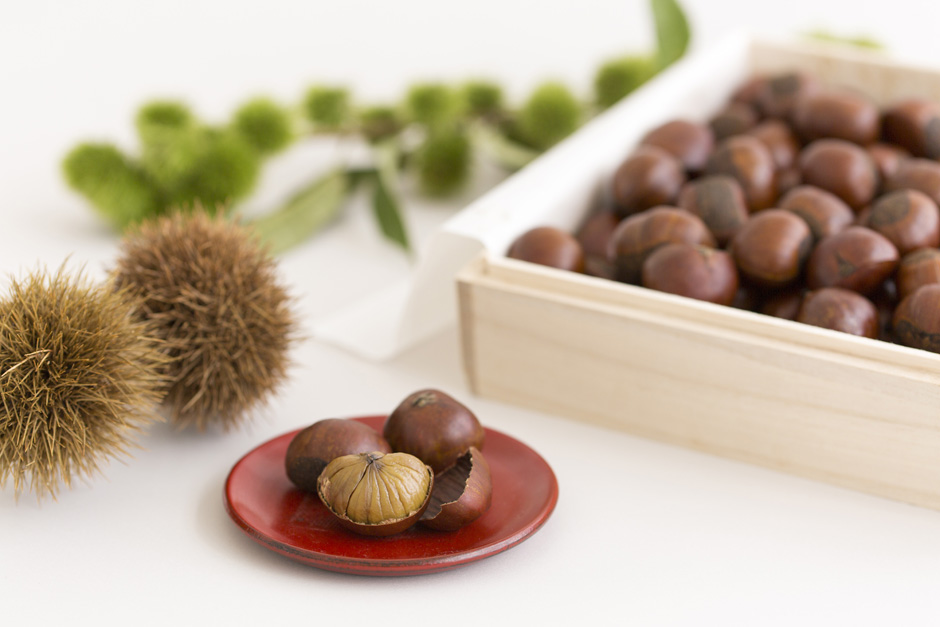
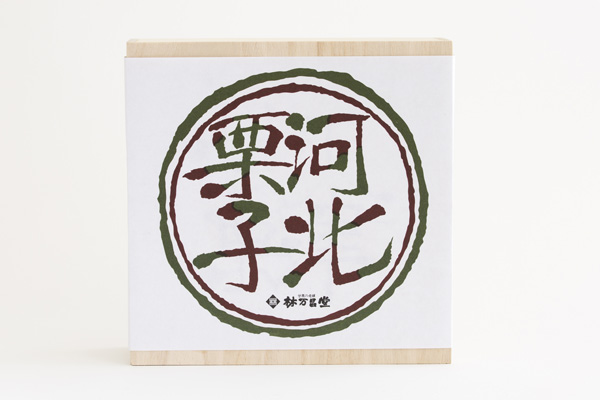
*The packaging design is subject to change without notice.
In this article we introduce “Sweet Roasted Chestnuts in a Wooden Box,” a product especially optimal as a gift, from all Hayashi Manshodo sweet chestnut products.
Let’s see why Hayashi Manshodo’s Sweet Roasted Chestnuts in a Wooden Box makes a great gift.
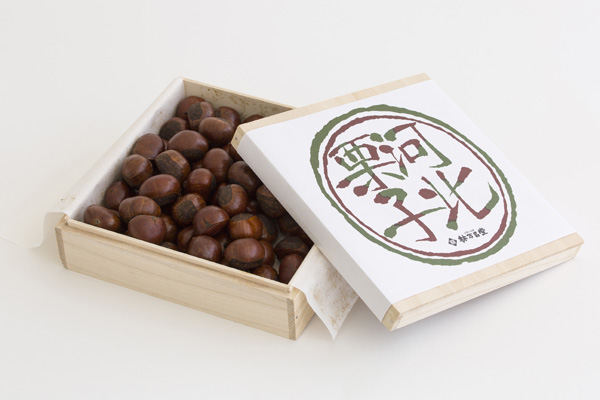
A box made from paulownia wood offers elegance and maintains product quality
This product features sweet roasted chestnuts packed into an upscale, unpainted paulownia box. Paulownia wood exudes an elegant atmosphere that is perfect for gifts, and also works to maintain product quality. Standard roasted chestnuts have a best-by date three days after their roasting, but as paulownia wood is more airtight and delays oxidation, the chestnuts in this wooden box have a best-by date five days after roasting.
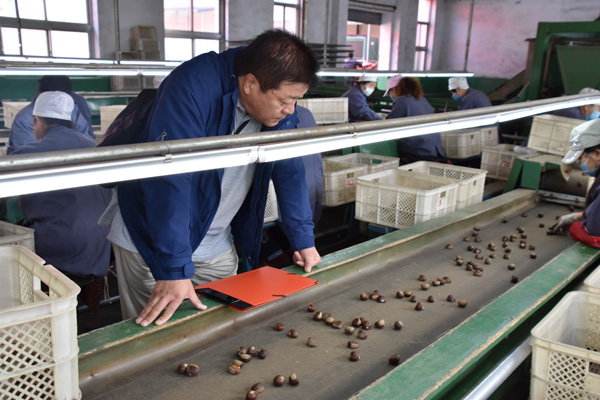
The production center of specialty chestnuts
Although the chestnuts from China’s Heibei Province are renown for their sweetness and taste, the chest-nuts produced at Qinglong Manchu Autonomous County have a higher level of sweetness, and are said to be as “sweet as sugar.” Hayashi Manshodo goes directly to Qinglong County for the selection, negotiation, and purchasing high-quality chestnuts for their products.
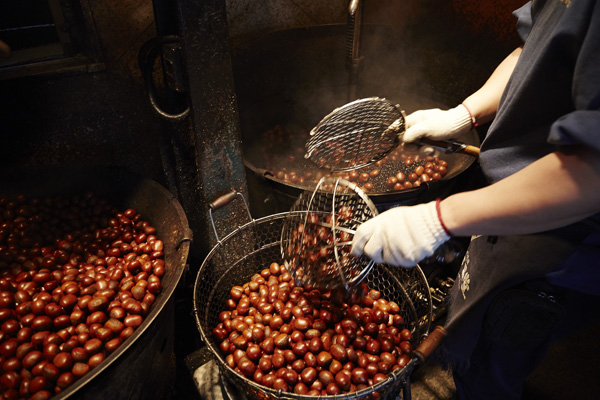
The craftsmanship of slow roasting, with ups and downs
Chestnut roasting is an art that calls for much experience, as there is no way to see the roasting progress because of the chestnut shells.
Keen attention to smoke, the condition of small stones and sounds from the roaster are used to adjust tem-perature. The chestnuts are roasted slowly and with modulated heating to accentuate the chestnuts’ original flavor while creating a soft texture.
The non-stop endeavors of a specialty store regarding their chestnuts
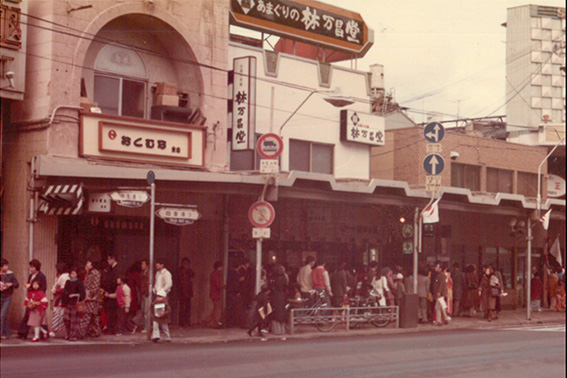
Hayashi Manshodo started as an arrowhead specialty store “Kuwaiya Buhei” in 1874. Japan received its first import of sweet chestnuts in the Taisho era (1912-1926), and the store ventured into the sweet chestnut business due to its similar texture to arrowhead and its novelty as a product. The number of imported chestnuts during this period was scarce and tended to be scooped up by trading companies and wholesal-ers. Although high procurement costs were a headache for this specialty store, the novelty and taste of sweet chestnuts resulted in good sales, and the store has been a Kyoto staple for sweet chestnuts ever since. When chestnuts could not be imported during the Second World War and when diplomatic relations between Japan and China were severed, the store held on to their business by steaming Tanba chestnuts.
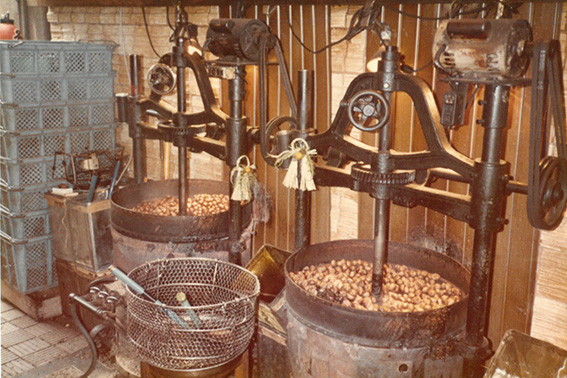
Although sweet roasted chestnuts had established itself in Japan’s food culture from long ago, China’s WTO participation in 2002 resulted in more freedom with regard to chestnut imports, which caused an inpour of sweet chestnut snacks. This and talk about pesticide residue on Chinese produce caused the sweet roasted chestnut market to shrink down from its heyday.
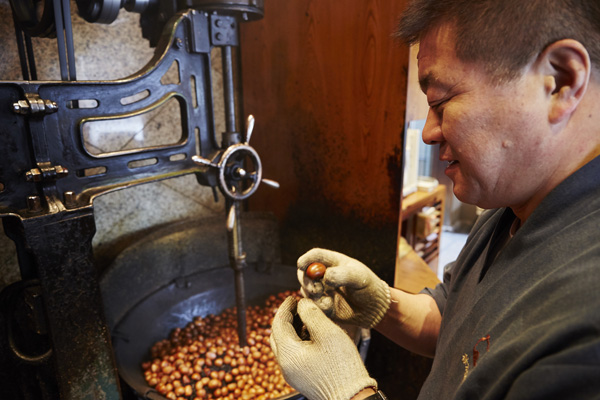
“The motto of our stores is ‘never use what you cannot fully trust.’ We have great confidence in our chest-nuts, as we secure quality chestnuts through direct negotiation at production locations, and pay close atten-tion when selecting. These chestnuts are roasted with the skills of a master cultivated over many years. We never fail to offer freshly roasted chestnuts at our stores, which has gained our customers’ trust and pat-ronage for many years,” says the fourth-generation company representative Masahiko Hayashi, explaining why Hayashi Manshodo has been loved through its hardships after all these years.
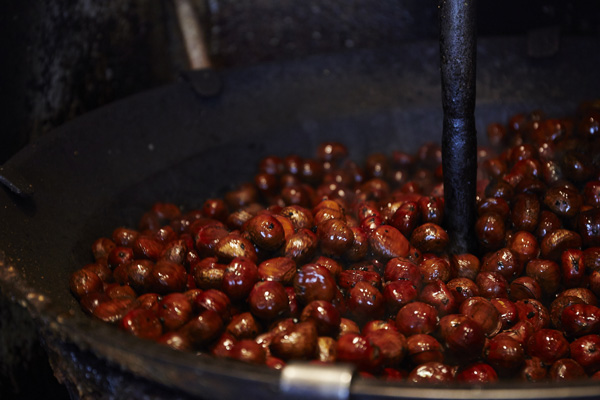
Recent years have given birth to new sweet chestnut products, to meet new trends in society. Some prod-ucts are “Chestnut Ice Cream,” with chestnuts mixed into rich-flavored vanilla ice cream so customers can enjoy sweet chestnuts in the summer (sales halted as of November 2018), “Chocolate Marron” which has peeled, freeze-dried sweet chestnuts covered in chocolate, and “Chestnut Charcoal,” which is an air fresh-ener created by chestnuts that did not meet product standards, so they can be used without going to waste.
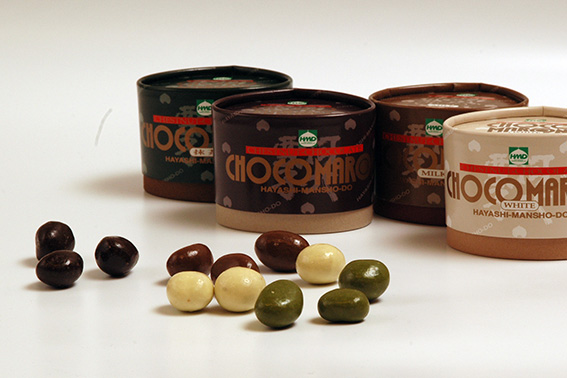
All of these products have gone under trial-and-error for many years before being released as products. In-stead of breaking under the diminishing market, Hayashi Manshodo has paved their own way to showcase the appeal of sweet chestnuts.
A special gift that brings good fortune
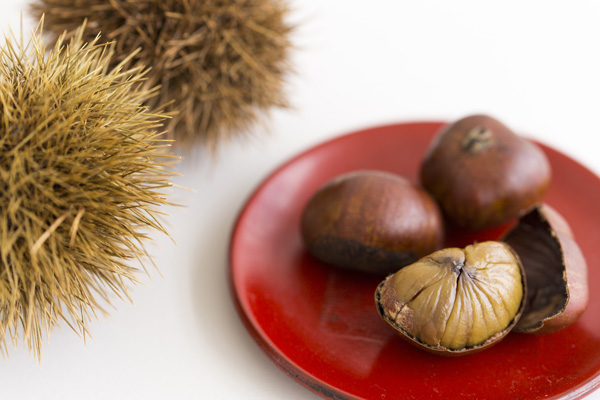
Although sweet chestnuts originated in China, chestnuts have been cherished as gifts in Japan from the past. The Heian period (794-1185) had a So-amaguri-no-tsukai (envoy of so condensed milk cakes and amaguri sweet chestnuts)” which delivered so and amaguri from the emperor to banquets. In the modern world as well, chestnuts are often selected as a gift for celebration or condolence, for any age and gender, as it is said to bring good fortune as its name “Kachiguri” (kachi means “to win”) implies.
In our current world of diverse and varied sweets, we could say that sweet roasted chestnuts are a simple, natural and healthy snack. Sweet roasted chestnuts cannot be flavored and processed artificially, and the ingredient quality and roasting techniques directly affect product quality. We asked Hayashi about some im-portant points when purchasing chestnuts.
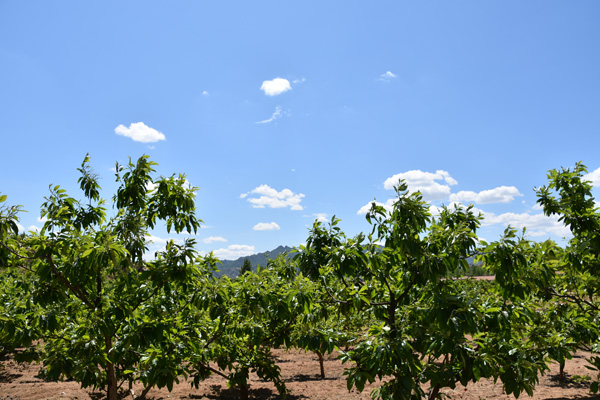
“The ingredient for sweet roasted chestnuts is ‘chestnuts that can have their astringent coat peeled.” These chestnuts can be found in the 40 degrees latitude area of the Northern Hemisphere. Of these areas, the chestnuts from China’s Heibei Province are known for their sweetness and tastiness, and of these, chest-nuts specifically from the Qinglong Manchu Autonomous County are said to be as ‘sweet as sugar.’ Alt-hough factors such as well-drained soil, rich mineral content, and being in an area with temperature ex-tremes and moderate rainfall play a part, the most important factor is the producers’ attitude towards han-dling chestnuts. High-quality produce will not reach half of its potential if it is harvested too early. We pur-chase these chestnuts while paying attention to factors such as this.”
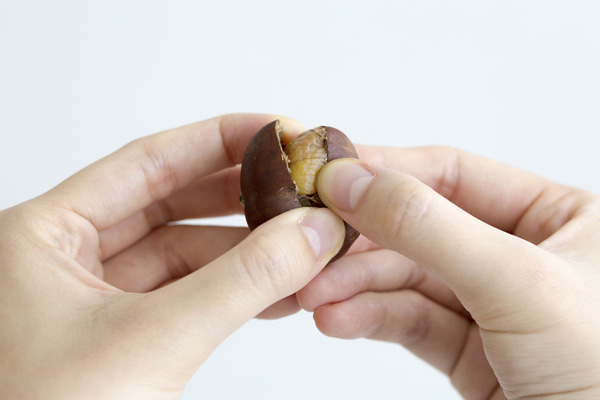
The sweet roasted chestnuts from Hayashi Manshodo are wrapped in paper with the words “Kahoku-Riitsu” on it. “Kahoku” is the place of origin of the chestnuts, the Heibei Province in China, and “Riitsu” is sweet roasted chestnuts in Chinese. Although these types of chestnuts are often called “Tenshin amaguri” (Tianjin sweet roasted chestnuts), Tianjin is the export port for the chestnuts and not its production area. The name “Kahoku-Riitsu” shows how carefully the production area has been selected.
Chestnuts are harvested once a year, in the autumn. Freshly harvested chestnuts in mid-October have a powerful chestnut fragrance. It is said that the sweetness of these chestnuts become stronger as it matures around November. Why not select sweet roasted chestnuts while they are at their best in this season, as a gift for someone special?

